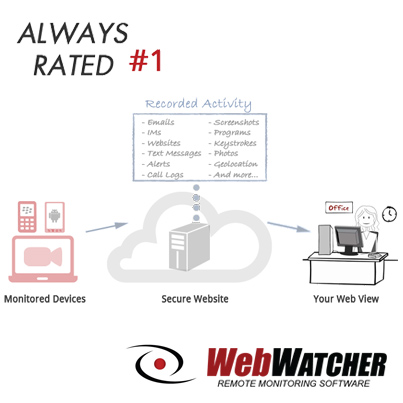It’s a moral quandary for the modern age: should you read your child’s text messages, or let them have their privacy?
It’s not a question that all parents agree on. While some parents blithely assert that since they pay for the phones and have responsibility for the child, they’re entitled to read anything they like, others just as vehemently argue in favor of their own children’s rights to privacy. And of course, many parents fall somewhere in-between the two extremes.
Is there a right answer? And if so, what is it?
It’s Complicated

The truth is that both sides have a point. Parents are responsible for their underage children, and they can’t protect them and guide them in the right direction if they don’t have all of the information. And there may very well be information that a parent needs that is stored in the child’s text messages. On the other hand, children do need and deserve some privacy as they build relationships independent of their parents and learn to navigate their own social worlds.
Complicating factors, even more, is the fact that there isn’t any one-size-fits-all solution. Children of different ages need different things from their parents in regards to both privacy and protection.
Generally speaking, a 9-year-old needs more of the latter and less of the former, while a 16-year-old is in the opposite situation. But you can’t go by age alone either. Different children have different maturity levels, different needs, and different social and family dynamics to contend with. Two kids in the same class could need very different types of parental monitoring even though they’re similar in age, education level, and life experience. Two kids in the same family might also need to be treated differently at the same age depending on their maturity levels. These are difficult decisions that in the end, must usually boil down to parents using their best judgment. However, there are some guidelines that parents can follow.
Don’t Be Sneaky
It’s one thing to read your child’s text messages. It’s another thing to read your child’s text messages without their knowledge. If you feel justified in reading them, you ought to be willing to be upfront with your child about what they’re doing.
Wanting to keep your child safe and have the information you need about their lives to provide guidance is a fair reason for reading text messages – if that’s what you want to do, just say so. You shouldn’t need to grab your child’s phone when they’re sleeping.
Sure, your child may not be happy about you reading their text messages. But if you make it a condition of them having a phone, most will accept it, especially if you set the rule when you first give them the phone. But sneaking around can backfire. If your child finds out after the fact that you’ve been reading their messages all along, they’ll feel betrayed and they may lose trust in you. This kind of conflict in your relationship can do far more damage than you’d do by just telling your child what you’ll be doing.
Pick Your Battles
If you’re reading your child’s text messages, you’re likely to see any number of things, and it’s a good bet that you won’t like a good chunk of them. But not everything is worth fighting about or even addressing. By the time your child is old enough to have a phone – most likely in their tween or early teen years – they’re at the age where it’s normal for them to begin exploring their world in a little more depth and pushing back against their authority figures and role models.
You may notice things such as swear words in messages between your child and their friends, even if they don’t swear in front of you. You may see conversations that explore more mature topics, like sex, sexual and gender identity, social issues, and more. You might find opinions you disagree with or evidence of minor misbehavior.
Not all of this needs to be addressed head-on, and some of it doesn’t need to be addressed at all. For example, it’s normal for tweens and teens to speak differently to their friends than they do to their parents, teachers, and other adults. As long as your child is still speaking respectfully to you and conducting themselves appropriately in most situations, you don’t need to worry too much about the odd curse word that they use with their friends.
It’s also normal for tweens and teens to start exploring more mature subjects and forming opinions that aren’t based on what their parents have taught them. You can make sure that they know where to find good and responsible information about things like sex and relationships and encourage them to keep an open dialogue with you about their thoughts, but you don’t need to push them too hard. On the other hand, if you find evidence that your child is making serious mistakes, like skipping school or experimenting with drugs, or that they’re engaging in risky sexual behaviors or being coerced into sex, those are things that definitely do need to be addressed right away.
Know When to Make Judgement Calls About Third Parties
The tricky thing about reading your child’s text messages is that you’ll end up learning a lot of information about the people they’re texting with as well. And that can put you in some very awkward spots. Do you address things that you learn about your child’s friends with their parents? With the friend themselves? Not at all?
Once again, it really depends, but as a general rule, it’s probably best to try to forget what you read when you learn sensitive information about another child through your child’s text messages. The exception is if someone is in serious trouble. If you find evidence that a friend is being abused, for example, you have an obligation to do something to protect that child. But you need to understand that they may not be happy about it, and they may be angry with your child for letting you see that information. If no one is in any danger, let it go and when you see that friend, pretend you don’t know a thing.
Parental monitoring software can help you keep an eye on your child’s text messages and other mobile device activity and easily give you access to the information you need to protect and guide your child. For more information about how parental monitoring software can work for you, get our free trial.





